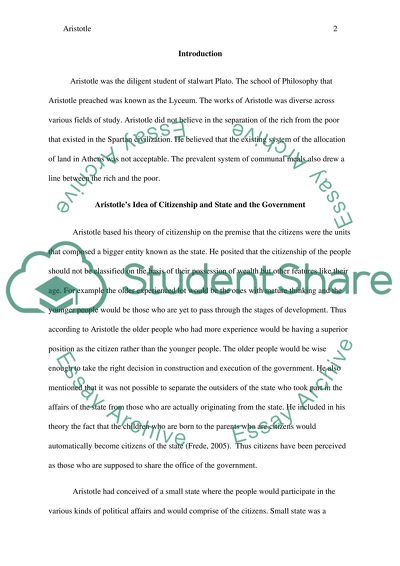Cite this document
(“ARISTOTLE Essay Example | Topics and Well Written Essays - 1250 words”, n.d.)
Retrieved from https://studentshare.org/philosophy/1486715-aristotle
Retrieved from https://studentshare.org/philosophy/1486715-aristotle
(ARISTOTLE Essay Example | Topics and Well Written Essays - 1250 Words)
https://studentshare.org/philosophy/1486715-aristotle.
https://studentshare.org/philosophy/1486715-aristotle.
“ARISTOTLE Essay Example | Topics and Well Written Essays - 1250 Words”, n.d. https://studentshare.org/philosophy/1486715-aristotle.


